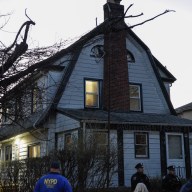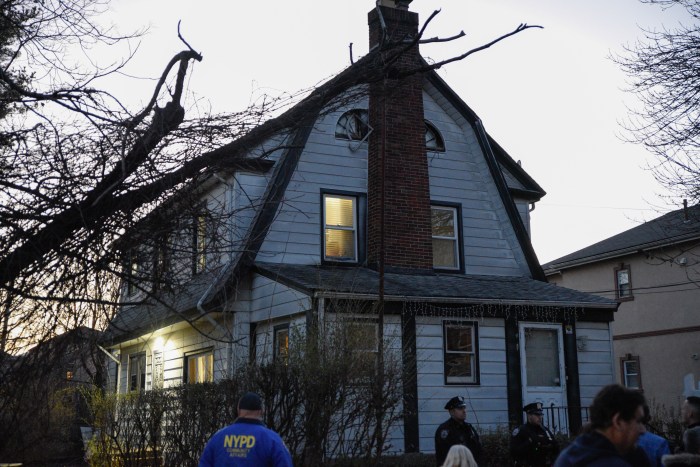By Bob Harris
Senior citizens from each of the five boroughs meet monthly at the New York City Transit Authority headquarters at 130 Livingston Plaza and at the Metropolitan Transportation Authority headquarters on Madison Avenue near Grand Central Station to discuss transit concerns and listen to speakers who often have answers.
There is authorization for four representatives from each borough, but Queens only has three: Barbara Barr from Jackson Heights, Bob Harris from Fresh Meadows and Glynn Lloyd from Elmhurst. Patricia Dolan from Kew Gardens also comes as a representative of Queens Connection, which provides bus transportation for seniors.
At the meetings of the Senior Citizens Advisory Committee to the Transit Authority the representatives are able to ask questions and complain. They tell of broken elevators, escalators not running for an extended period of time, the handles on the stairs being too thick to easily grasp, needed exits closed on off hours, signs too high to read or not worded clearly or needed bus service on certain routes at certain hours, among other complaints.
One of the regular members of the Citizens Advisory Committee is Bruce Levy from customer relations of the Department of Bus Employees and a staff reporter in The Leader, which is the Transit newsletter for bus employees.
Levy takes complaints concerning the Transit Authority and explains happenings. He wrote a full page about the Citizens Advisory Committee in his February 2002 Leader. Levy explained that “Back in 1976 (New York City Transit) set up the Citizens Advisory Committee as an ad hoc group seeking betterment of (Transit’s) expansive bus and subway network.”
Since 1986 the chair of the Senior Citizens Advisory Committee has included Louise Colavito, a retired teacher and active United Federation of Teachers member from Staten Island. Some of the things she and the Citizens Advisory Committee have accomplished have been to secure half-fare for seniors and expand the hours beyond the initial 10 p.m. to 3 p.m. off-peak hours. Colavito commented, “We go out after 3 p.m., you know.” Sounds just like an old-time teacher.
Other early successes of the Citizens Advisory Committee are the courtesy decals appearing on the front seats of city buses, “Won’t you please give this seat to the elderly or disabled?” Not too long ago the Citizens Advisory Committee visited a model of a proposed new bus on the first floor of 130 Livingston Plaza. Another time they were given the chance to operate the proposed new fare machines.
Members critiqued both of these machines. I hope the current working machines are better for their input.
Another Transit employee who meets with the Citizens Advisory Committee is Carolyn Jackson-Colley. She is the government and community relations overall liaison. She is available to answer questions but more important when a topic needs explaining she arranges for knowledgeable guest speakers.
One month a speaker may be a planner of the Manhattan Bridge reroute, the next may speak on a Queens subway station upgrade, followed by the MetroCard’s Mail and Ride program manager.
Another city employee who always attends the Citizens Advisory Committee meetings is Linda Black, a planning specialist for the Department for the Aging. She is active with this group because, “Transportation for older people is key for staying independent in the community whether it is traveling to work, to volunteer or to visit some cultural scene. Transportation is the advantage for seniors remaining in the city instead of retiring to more remote locations,” she said.
Black always has useful literature that I sometimes report on in this column.
It is interesting that senior citizens comprise about 12 percent of New York City’s population. Queens has 374,562 seniors or 29 percent. There are more than 1.2 million seniors in New York City.
In his column, Levy cautioned bus drivers to assist seniors. He urged them to always make an effort to pull fully next to the curb, make sure passengers are seated before pulling away from the stop, make all required bus stop announcements, patiently answer questions in a pleasant manner and use the kneeling features.
At the recent Citizens Advisory Committee meeting a couple of members complained about bus drivers who at the end of their lines do not open their doors when it is freezing or raining. It was suggested that one ask the driver if he or she would kindly open the door. The driver should open the door but if all else fails, seniors should take down the line, bus number and time and report the driver.
A few recent activities of the Citizens Advisory Committee have been to volunteer their collective experiences for an oral history project with the Transit Museum’s education director, Mark Watson. They also assisted in a low-floor articulated bus test on the M23 route.
Good and bad news of the week
The chancellor and the mayor are setting up gates in the third grade. No child is supposed to be promoted unless he or she has mastered some basic third-grade academic ability. It sounds good but I remember a previous superintendent did the same thing in the fourth grade. With his leaving, the plan just ended. The fourth-grade gates were opened because there were too many children left back with no room for them.
This time the plans call for targeting struggling students early with tutoring before and after school, during Saturday classes and in summer school programs. An appeals process will be available for teachers who feel certain students should be promoted.
Some things I have not noticed in the plan are using workbooks in which the children can actually write, having working copy machines and enough paper and giving inexpensive, interesting books to children to read and keep so there is a home library like the one my 2-year-old grandson has.
Also missing is a plan to work with each and every parent to teach them parenting skills and deal with family problems such as drug or alcohol use, child abuse, homelessness and fear of authority due to illegal immigrant status. The plan needs to address older children’s being kept home to take care of younger children, fear of violence in the neighborhood, children’s health problems, low-income problems and low self esteem due to many of the above problems.
I hope they don’t try to hold the classroom teachers and supervisors accountable for these problems.
































